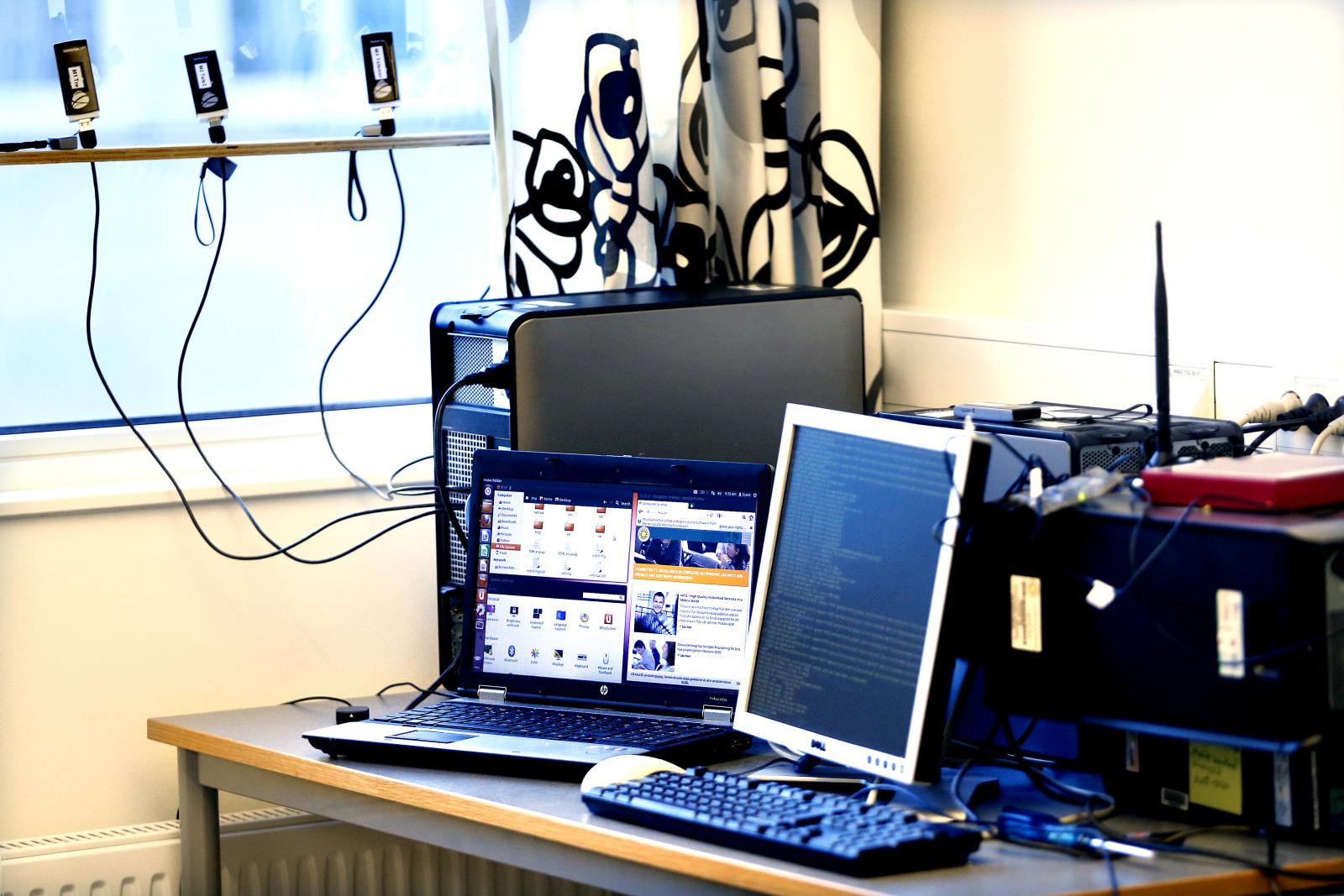News
-
2026-02-26
Karlstad University coordinates EU project on 6G
The EU-funded project PIONEERS-6G – Platform and Device Innovations for Energy-Efficient, Resilient, and Secure 6G IoT Systems, coordinated by Karlstad University with partners from six countries, aims to develop the mobile networks of the future with a focus on Internet of Things (IoT) services and applications.
6G is the sixth generation of mobile networks and the next step in the evolution of wireless communication. It is expected to be introduced in the 2030s and aims to offer higher speeds, lower latency, and more reliable connections than 5G. It will also be able to support a much larger number of connected devices simultaneously, ultimately fulfilling the requirements of several IoT scenarios.
-
2026-02-23
Computer Science recognizes its first Excellent Teacher
Muhammad Ovais Ahmad, Associate Professor of Computer Science, has been appointed the title of Excellent Teacher. He is the first at the Department of Mathematics and Computer Science to receive the distinction and the fourth at Karlstad University.
The title Excellent Teacher is appointed to educators who develop their teaching by integrating it with research and who help students understand and think in new ways. For several years, Muhammad Ovais Ahmad has worked to connect his technical research with innovative teaching methods:
“This academic distinction shows how important it is to make complex and abstract systems accessible and inspiring for the next generation of innovators”, he says.
In what ways do you develop your teaching?
-
2026-02-04
Students recognized for outstanding achievements in a software project
A number of computer science students have been recognized for their outstanding project work in the Software Engineering course. Two project works were recognized with diplomas: one for “best project work” and one for “best UX design”.
The goal of the project was to develop a web-based tool for event planning and communication. This tool will facilitate the management of both internal and external events and communicate news, etc.
Dr. Jonathan Vestin, Associate Professor of Computer Science, developed the requirements specification and acted as the end customer: "It was impressive to see such a professional app developed by the students within a limited time frame. They not only met the most important requirements but also showed empathetic and innovative thinking."
-
2025-12-19
The Digital Health Innovation Initiative in Värmland Enters a New Phase
DigitalWell Arena is now taking the next step in its long-term commitment to digital health innovation in Värmland. After several years focused on establishing a platform for research and collaboration, the work is now shifting towards the large-scale implementation and practical use of digital solutions.
Research at Karlstad University has been a central driving force behind DigitalWell Arena since its launch in 2019. By bringing together around 60 researchers from six research groups and disciplines such as computer science, nursing, psychology, service research and gender studies, the university has built an interdisciplinary research environment for digital health innovation.
-
2025-12-16
SIMONE project successfully concludes B5G pilot
Karlstad University (KAU) and Softcode AB successfully completed their participation in IMAGINE-B5G Open Call 2, testing an immersive remote-education solution (SIMONE) at the Norwegian SINLAB facility over a 12-month period. The trials demonstrated the feasibility of real-time 360° video streaming and immersive learning over operational 5G/B5G infrastructure, showcasing the potential of immersive education for the broader education sector.
IMAGINE-B5G is a Horizon Europe / SNS JU initiative that provides an advanced end-to-end 5G/B5G platform enabling large-scale trials and pilots across Europe. The project federates experimental facilities in Norway, Spain, Portugal, and France, offering SMEs, start-ups, academia, and industry access to test innovative vertical applications and platform extensions. SIMONE was one of the 15 projects selected in Open Call 2.
-
2025-12-05
How 6G can transform healthcare education
The 6G-PATH project (6G-Pilots and Trials Through Europe), involving both Computer Science and Nursing recently presented its technology to an audience during a fully attended seminar.
The aim of the project is to advance education in health and medical care by using communication technologies such as 5G and 6G, combined with Extended Reality (XR) and Virtual Reality (VR).
The goal is to make healthcare education more realistic and flexible, for example through VR and remote training where simulators and equipment can be used outside traditional classrooms. The technology can also support healthcare personnel in acute situations by allowing experts to join remotely.
Calendar
-
Öppen föreläsning: Digital goldrush- Ditt privatliv säljs till högstbjudande
-
Disputation i datavetenskap
-
Disputation i datavetenskap
-
Disputation datavetenskap
-
Öppen föreläsning: Digital goldrush- Ditt privatliv säljs till högstbjudande
-
Öppen föreläsning: Digital goldrush- Ditt privatliv säljs till högstbjudande










